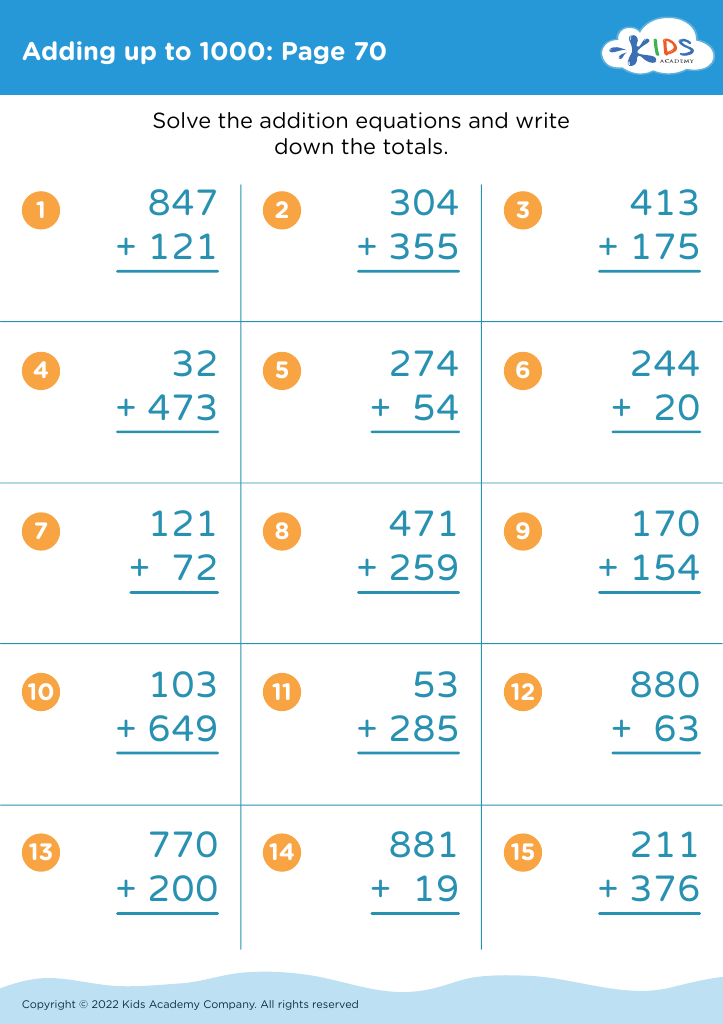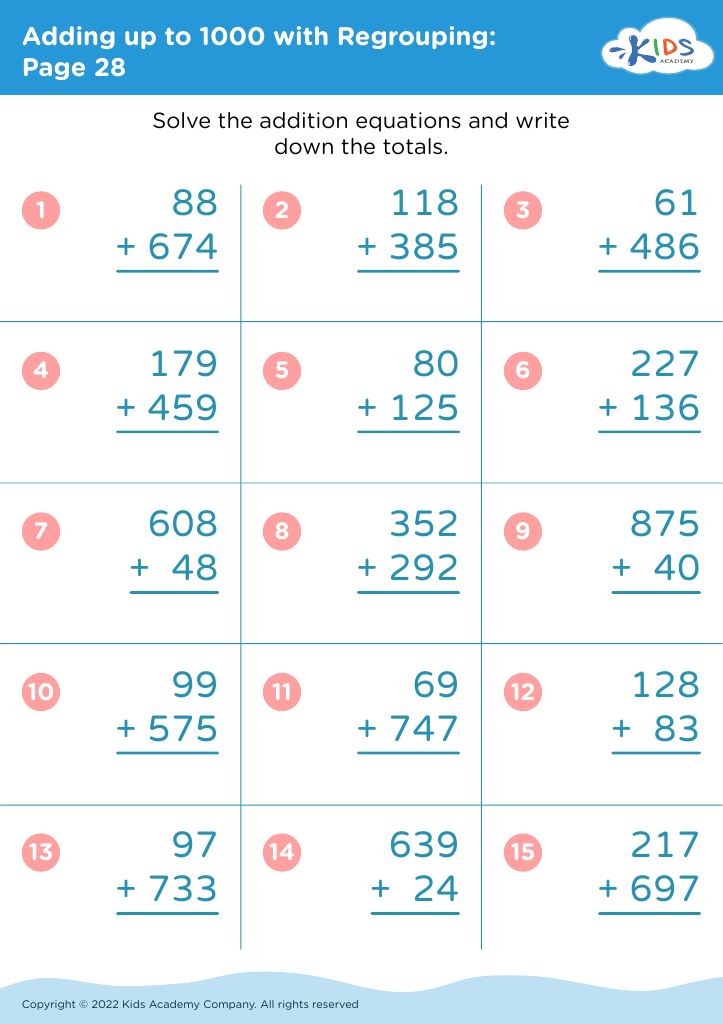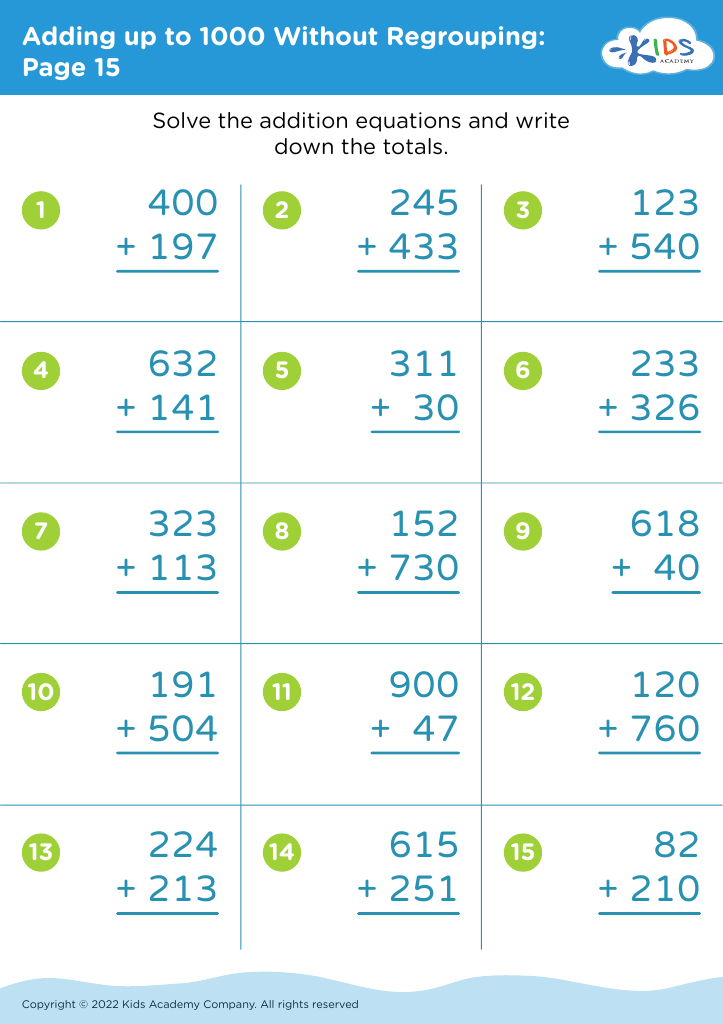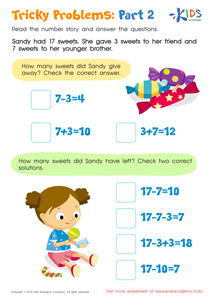Fraction Addition Grade 2 Adding up to 1000 Worksheets
5 filtered results
-
From - To
Unlock your 2nd grader’s potential with our “Fraction Addition Grade 2 Adding up to 1000 Worksheets”! Designed specifically for young learners, these worksheets provide a fun, interactive way to master fractions. Each sheet focuses on seamlessly combining fractions, all while enhancing arithmetic skills. Engaging exercises help solidify concepts through visually appealing formats, simple problems, and clear instructions. Perfect for in-class activities or extra practice at home, these printables support foundational math skills crucial for future success. Explore today and empower your child with the tools needed to excel in fraction addition effortlessly!
Understanding fraction addition at a Grade 2 level sets the foundation for future mathematical learning and real-world applications. Early grasp of fractions aids in developing a child’s number sense, critical thinking, and problem-solving skills. For parents and teachers, investing in this foundational knowledge has numerous benefits that extend beyond the classroom.
Fraction addition teaches precision and the understanding of parts making a whole. These concepts are critical not only in mathematics but in everyday activities. Cooking, dividing chores, and handling money are scenarios where a child can apply their knowledge of fractions. Reinforcing these lessons early helps children become comfortable with numerical relationships and boosts their confidence in handling complex arithmetic later on.
Moreover, familiarizing young learners with adding fractions up to 1000, an aspect of mastering fractions, integrates the understanding of magnitude and the decimal system. This aligns with standardized academic goals and equips children to tackle higher-level mathematics, such as algebra and geometry, with greater ease. Early intervention and encouragement from parents and teachers can therefore maximize a child’s potential, form positive attitudes towards math, and lay a solid framework for lifelong numerical literacy—a critical skill in an increasingly quantified world.

















